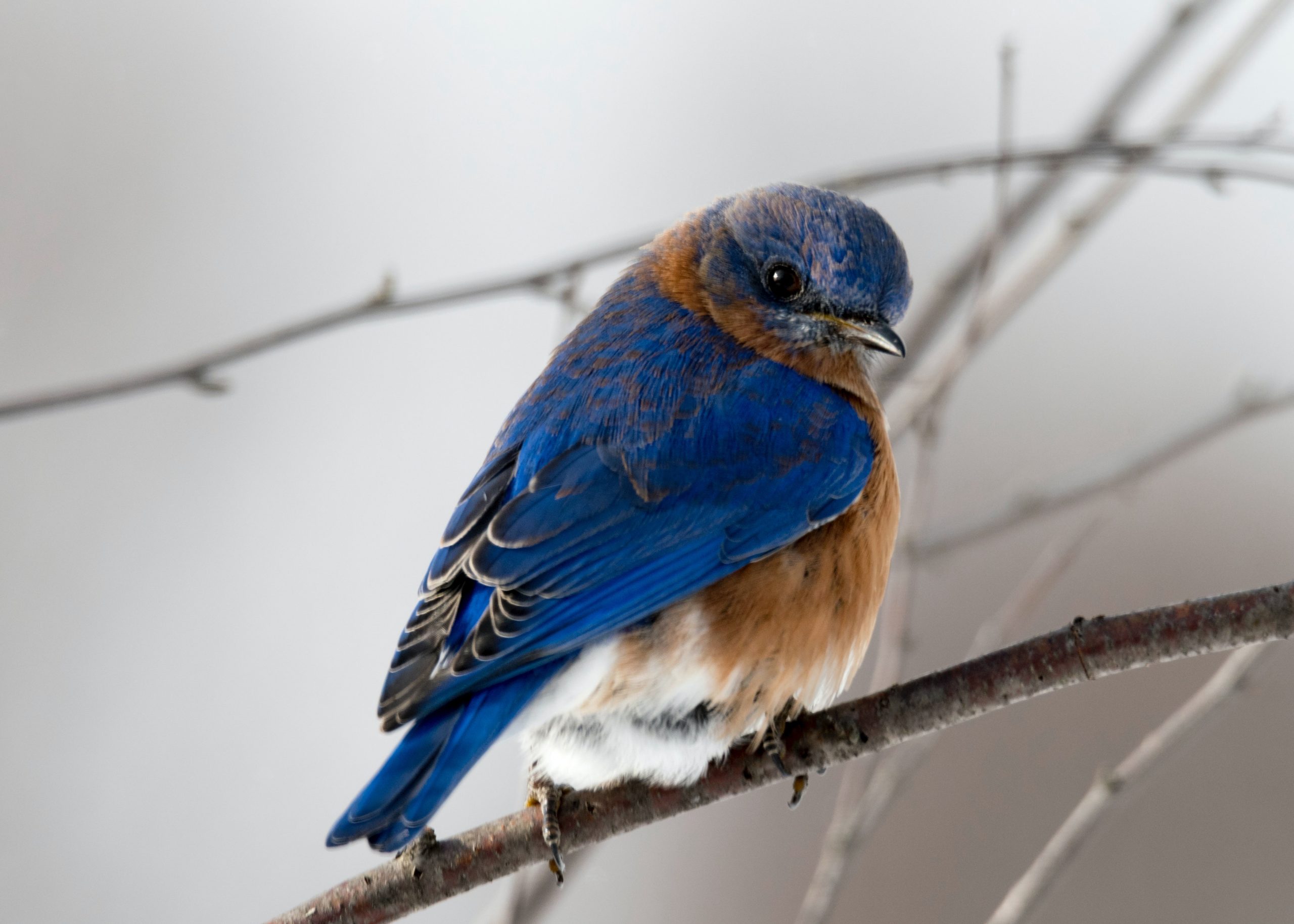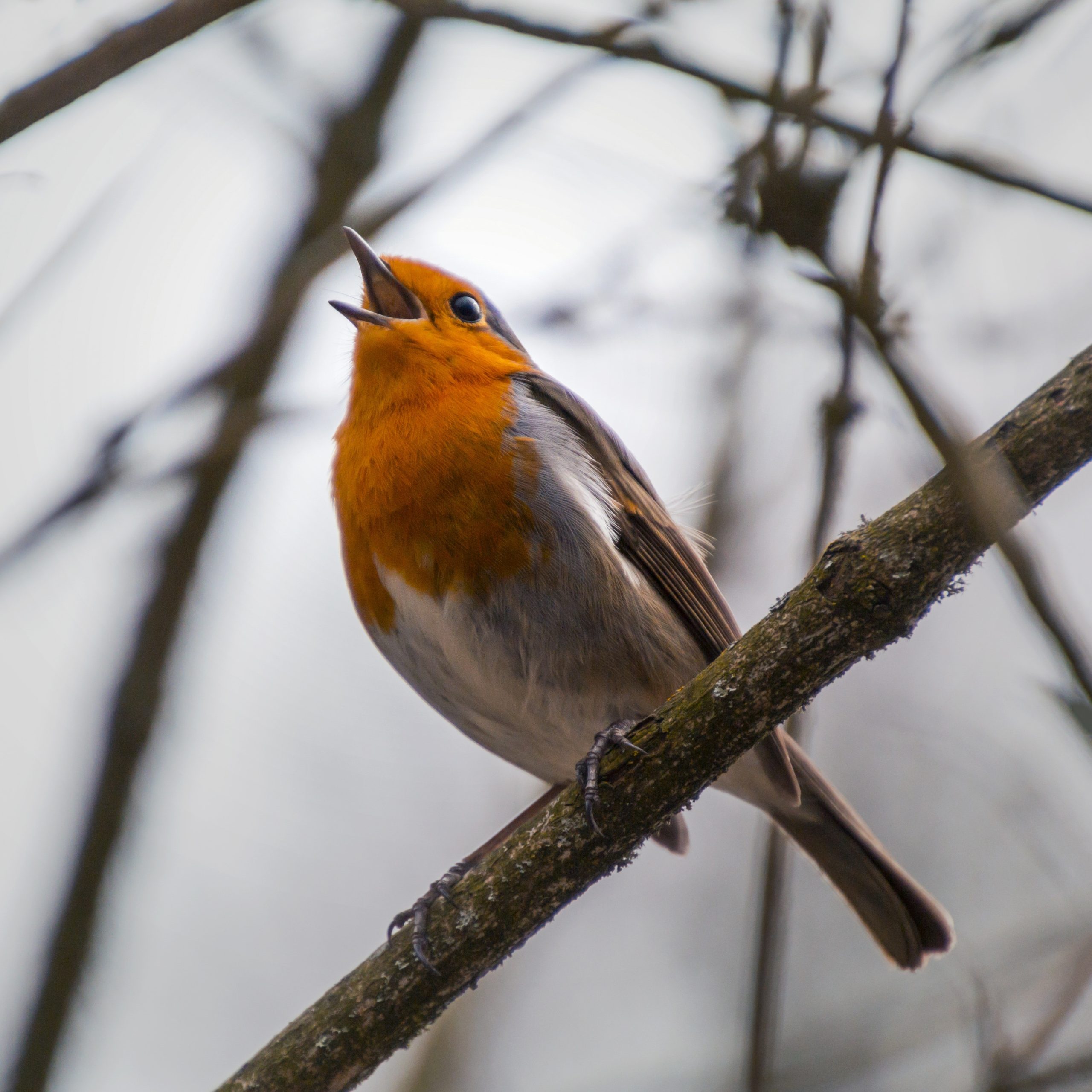Hearing birds is good for you, but lawn care undermines the benefit.
KEY POINTS
- Hearing birds sing is good for your mental health.
- Bird song has a more powerful effect than simply being exposed to nature.
- The noise of lawn care can undo the salutary effects of bird song.
Three bird feeders hang beside my window only a few feet from where I sit at my writing desk. For years I’ve watched them flock to the millet, sunflower seeds, and suet, seemingly indifferent to me.
In 2023 I participated in Cornell’s Project Feeder Watch to count how many and what kind of birds I saw from January to April through my window. This census is vital in determining the overall health of birds and from that drawing inferences about the state of the environment.
I’ve enjoyed seeing birds at my suburban home on Long Island. There always are house sparrows, but also woodpeckers, nuthatches, cardinals, and blue jays. By paying closer attention because of my involvement in the Cornell project, I noted nearly 20 different species of birds.
Although my windows were shut during most of the count, I could hear birdsongs, calls, chirps, and squawks. Paying attention to the activity around the feeders, the combination of seeing birds I hadn’t noticed before, closely observing their behavior, and listening to their chatter helped lift the winter doldrums.

My reaction would not surprise researchers whose studies show that birdsongs have a positive effect on mental health. In a 2022 study involving 295 randomized participants, Emil Stobbe and colleagues found that exposure to birdsongs lowers anxiety and reduces paranoia. (At the same time, exposure to traffic noise increases depression.)
Another study, involving more than a thousand self-selected respondents, primarily from the United Kingdom, but also from the European Union, U.S., China, and Australia, concluded that “Everyday encounters with birdlife were associated with time-lasting improvements in mental well-being. These improvements were evident not only in healthy people but also in those with a diagnosis of depression, the most common mental illness across the world.” The study indicated that the effect of birds was greater than what would be expected by being exposed to green spaces. In other words, while nature, in general, has a salutary effect, seeing and hearing birds went beyond that of the outdoors by itself.
Hearing birdsongs seems to be an antidote to everyday stress and is effective even when mediated through earphones or whiles indoors. When BP gas stations throughout Europe used birdsongs in their toilets, for example, customer service satisfaction rose by 50 percent. And when bird soundscapes were piped in at a bank in Colombia, approval ratings rose from 64 percent to 90 percent in six months. Amsterdam’s Schiphol Airport pipes in birdsongs that are amplified in real trees in the airport’s quiet lounge.
Ironically, while warm weather brings us outside, it also brings power lawnmowers and leaf blowers. In addition to polluting the air with noxious fumes, the lawn care equipment creates a din that chases many birds away. Recognizing that, on balance, maintaining beautiful lawns is often detrimental to the environment, some municipalities now regulate the decibel level of lawn equipment. Another hopeful sign is the resurgence of native gardens, those places that require little maintenance while at the same time attracting birds, bees and other insects that sustain a healthy environment.
There is a right to lawn care but there is no right to disrupt the full use and enjoyment of another’s land. As often colloquially expressed: “Your right to swing your arms ends at the tip of another’s nose.” Or, in this instance, another’s ears. Everyone has a right not to be harmed by noisy and noxious lawn mowers and leaf blowers; we all have the right to hear birds sing.
Original post Psychology Today






